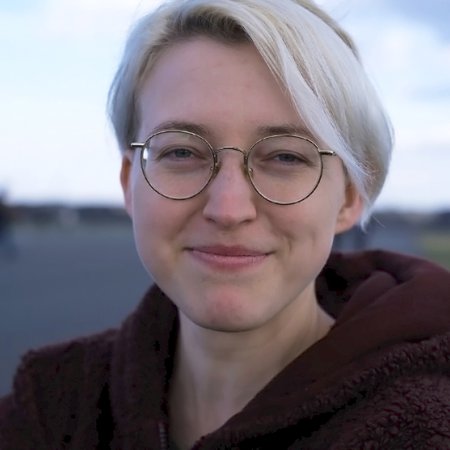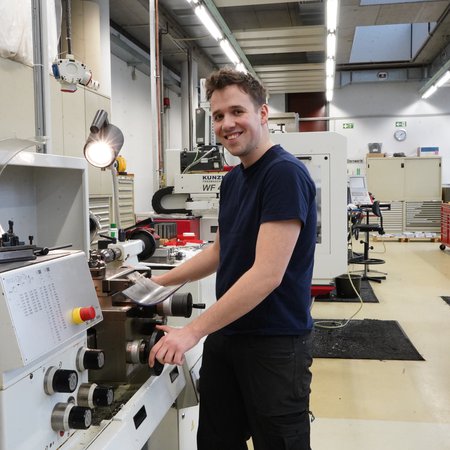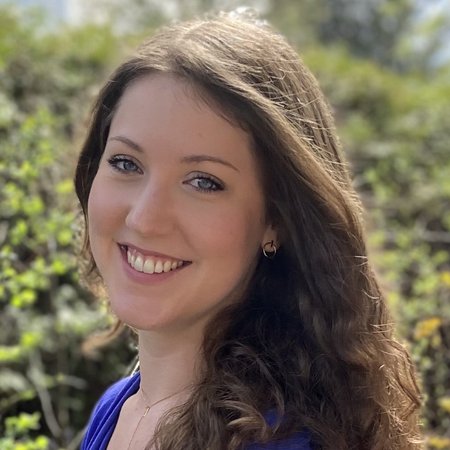AIP Schwarzschild Fellow Marcel Pawlowski receives Klaus Tschira Boost Fund
Dr. Marcel Pawlowski, Schwarzschild Fellow at the Leibniz Institute for Astrophysics Potsdam (AIP), receives funding from the Klaus Tschira Foundation and the German Scholars Organisation for his research on the distribution of satellite galaxies around the Milky Way and the nature of dark matter.
The funded project deals with the motion of small galaxies, so-called satellite galaxies, around the Milky Way. Leading cosmological models predict that such satellite galaxies distribute and move rather randomly. However, observations show surprising degrees of order: The satellites are preferentially distributed and move along flattened structures. These "Planes of Satellite Galaxies" fundamentally question our understanding of cosmology and galaxy formation.
“I will study systems of satellite galaxies in a range of cosmological simulations to determine the occurrence, properties, and origins of satellite planes, and determine whether they can tell us something about the properties of the host galaxy or the nature of dark matter,” explains Marcel Pawlowski. “I am excited that, in addition to traditional research funding, the KT Boost Fund lets me realise ideas that are often more difficult to fund, such as the organisation of an interdisciplinary hackathon at the AIP to bring together international experts and develop novel research ideas.” Pawlowski joined the AIP in Potsdam as a Schwarzschild Fellow in 2018. Prior to that he was a Hubble Fellow at the University of California in Irvine and a postdoc at Case Western Reserve University in Cleveland, Ohio.
For the second time, the Klaus Tschira Foundation and the German Scholars Organisation have selected young researchers to be supported by the "Klaus Tschira Boost Fund" programme. Over the next two years, a total of eleven young researchers will receive up to 80,000 euros in funding for their projects. The programme is aimed at excellent researchers in the natural sciences, mathematics, and computer science. The independent funding will enable the fellows to implement their own projects within two years. Support is provided primarily for interdisciplinary and international projects, including more daring research projects. The aim of the programme is to enable young researchers to conduct independent research and to sharpen their profile as early as possible.
Further information
Press release of the Klaus Tschira Stiftung:
More about the project:
Dr. Marcel Pawlowski, Schwarzschild Fellow at the Leibniz Institute for Astrophysics Potsdam (AIP), receives funding from the Klaus Tschira Foundation and the German Scholars Organisation for his research on the distribution of satellite galaxies around the Milky Way and the nature of dark matter.
The funded project deals with the motion of small galaxies, so-called satellite galaxies, around the Milky Way. Leading cosmological models predict that such satellite galaxies distribute and move rather randomly. However, observations show surprising degrees of order: The satellites are preferentially distributed and move along flattened structures. These "Planes of Satellite Galaxies" fundamentally question our understanding of cosmology and galaxy formation.
“I will study systems of satellite galaxies in a range of cosmological simulations to determine the occurrence, properties, and origins of satellite planes, and determine whether they can tell us something about the properties of the host galaxy or the nature of dark matter,” explains Marcel Pawlowski. “I am excited that, in addition to traditional research funding, the KT Boost Fund lets me realise ideas that are often more difficult to fund, such as the organisation of an interdisciplinary hackathon at the AIP to bring together international experts and develop novel research ideas.” Pawlowski joined the AIP in Potsdam as a Schwarzschild Fellow in 2018. Prior to that he was a Hubble Fellow at the University of California in Irvine and a postdoc at Case Western Reserve University in Cleveland, Ohio.
For the second time, the Klaus Tschira Foundation and the German Scholars Organisation have selected young researchers to be supported by the "Klaus Tschira Boost Fund" programme. Over the next two years, a total of eleven young researchers will receive up to 80,000 euros in funding for their projects. The programme is aimed at excellent researchers in the natural sciences, mathematics, and computer science. The independent funding will enable the fellows to implement their own projects within two years. Support is provided primarily for interdisciplinary and international projects, including more daring research projects. The aim of the programme is to enable young researchers to conduct independent research and to sharpen their profile as early as possible.
Further information
Press release of the Klaus Tschira Stiftung:
More about the project:
Images
Dr. Marcel Pawlowski.





